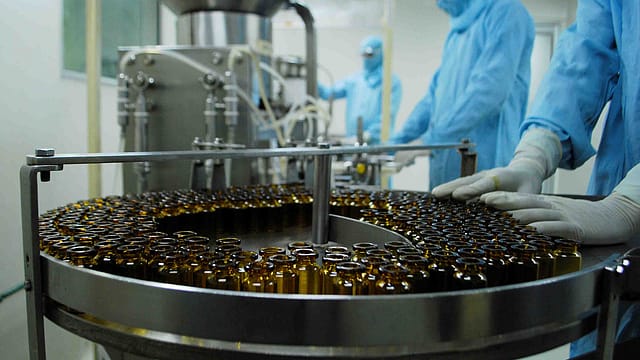Innovation-led Indian healthcare market to hit $320 bn by FY28: Bain
ADVERTISEMENT

The Indian healthcare market is projected to touch $320 billion in FY28, a 10-12% CAGR growth from $180 billion in FY23, says a report by healthcare fund HealthQuad and global consultancy Bain & Co.
One of the fastest growing segments within the overall healthcare market will be healthcare innovation which will double from the current value of $30 billion to about $60 billion by FY 2028, it says.
The innovation segment is dominated by pharma services (CDMO, CRO, pharma IT) and health-tech with vaccines and biotech, and med-tech emerging as green shoots, the 'Healthcare in Innovation in India' report says.
"From cutting-edge pharma services to disruptive health-tech and med-tech advancements, India's healthcare innovation landscape is experiencing a remarkable transformation. With its focus on innovation, quality, and cost-effectiveness, India's healthcare innovation market is addressing domestic needs and making its mark on the global stage. This $30 billion sector is fuelled by rising investments, supportive government policies, a deepening scientific talent pool and is brimming with potential in nascent fields such as Biotech and MedTech," says Aarthi Rao, partner at Bain & Co.
According to the report, the growth will be driven by rising consumerisation of health, reconfigurations to the global healthcare value chain, a deepening of Indian scientific and technological expertise, and regulatory tailwinds.
It notes that post-pandemic, individuals are increasingly proactive in managing their health, driving demand for personalised and accessible solutions. An increased interest in tele-health, wearable devices, and home-based diagnostics were cited as some examples of this trend.
The report also points out that India's potential as a manufacturing and innovation hub is attracting global players seeking cost-effective solutions and a large talent pool. It expects this reconfiguration to foster international collaborations and accelerate innovation within the Indian healthcare ecosystem. On deepening scientific and technological expertise, the report said that talent development and collaborative research initiatives are propelling it. Universities, research institutions, and start-ups are partnering to create a robust innovation ecosystem, fostering ground-breaking discoveries and solutions, it says.
Government initiatives like ease of doing business reforms and open innovation platforms were seen to be removing barriers and streamlining processes.
The report outlines the opportunity in healthcare innovation where companies increasingly leverage emerging technologies to add innovation vectors—including new business models, software-led solutions, and products—that extend beyond more longstanding value engineering considerations.